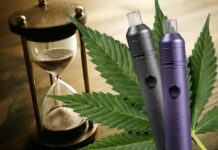
From the moment we wake up, when we need one last push to meet our deadlines, a pick-me-up during the winters, to meet up with our friends and colleagues to socialize, coffee is always there. In this fast-paced world, where we’re constantly moving through the motions, coffee has become a necessity that helps us maintain our energy levels, feel less tired, and improve our productivity. In fact, About 30 million American adults consume specialty coffee daily.
You may have heard of CBD coffee in your quest to find the perfect blend, but you may wonder what it is, what brands to select, and what health benefits or risks there are. You can find out more on this site or you can read more below:
What Is CBD?
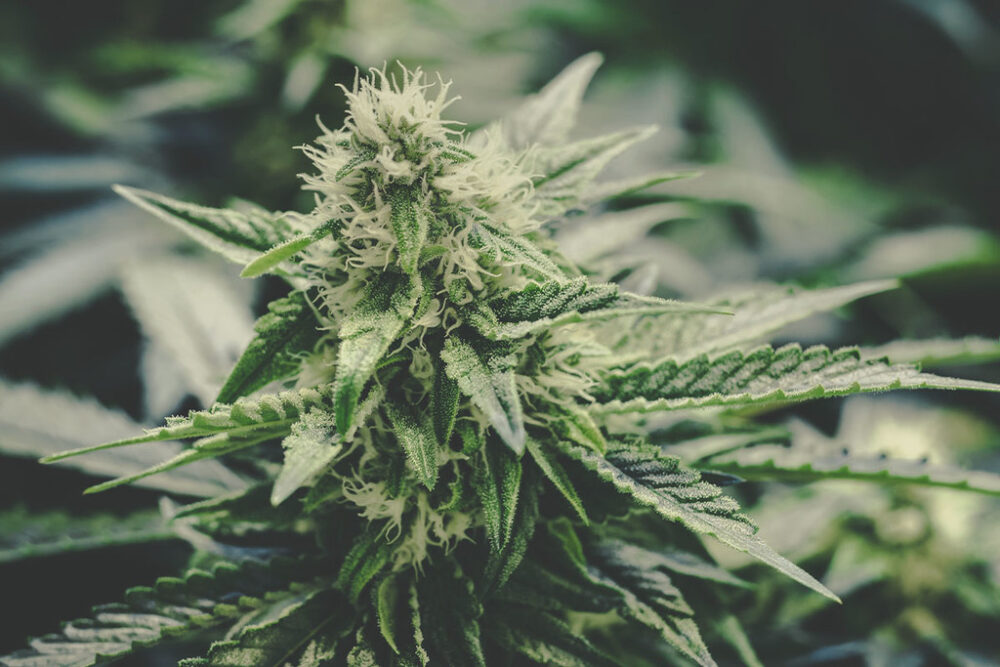
Many people use CBD as it provides relief for depression, anxiety, and stress and promotes sleep. Cannabidiol (CBD) is a phytocannabinoid discovered in 1940. It is an active ingredient derived from hemp and non-hemp plants and found in marijuana or cannabis. According to the WHO expert committee on drug dependence (ECDD), CBD, in its pure state, does not lead to substance abuse or have a psychoactive effect. Consequently, in many states, only hemp-derived CBD is available.
This is because hemp plants, part of the cannabis sativa plant, have less than 0.3% THC or tetrahydrocannabinol, the mind-altering substance which produces the “high” in marijuana. While THC activates the CB1 or cannabinoid receptor in the brain, which causes euphoria or high, CBD, a CB1 antagonist, blocks the intoxicating effects caused by the CB1 receptor and inhibits the effects of THC.
CBD works by interacting with the endocannabinoid system (ECS), a complex network of organs in our body that affects biological functions like learning, memory, eating, metabolism, pain, immunity, movement development, and growth. The two primary cannabinoid receptors are CB1 receptors in the CNS (central nervous system), which consists of the spinal cord and brain, and CB2 receptors in the PNS (peripheral nervous system) and immune cells. By interacting with the cannabinoid, serotonin, and opioid receptors, it produces effects in your body.
How Can You Combine CBD and Coffee?
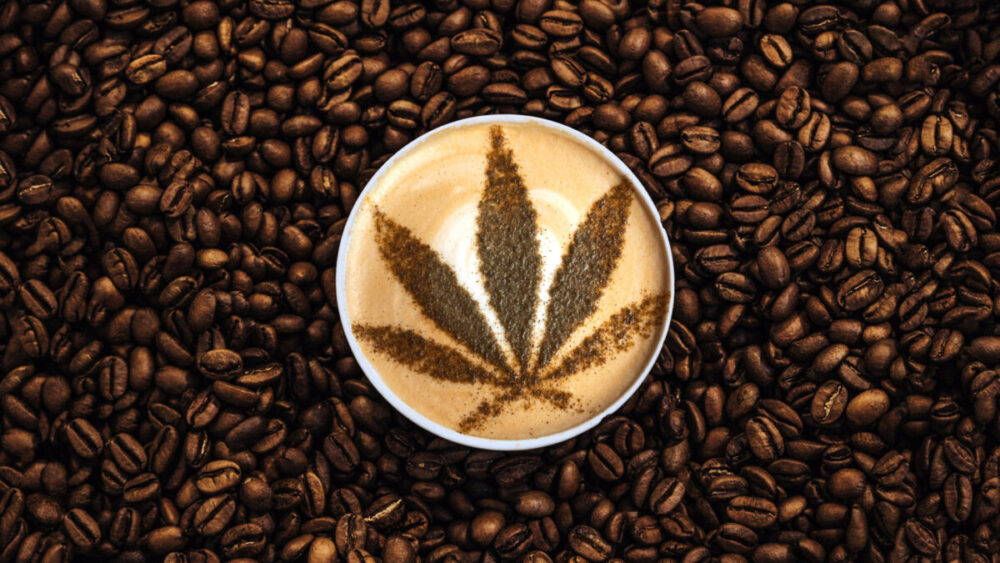
Caffeine is a stimulant that produces energizing effects, so you may wonder why people mix CBD, which supports relaxation, with coffee. Caffeine can make you feel antsy and cause jitters, especially if you drink your morning cup on an empty stomach; People believe CBD can counterbalance this stimulant effect. Caffeine and CBD improve your mental clarity and focus, Caffeine by promoting alertness, and CBD by promoting a clear and calm mind.
Many CBD manufacturers claim that their products will offer the benefits of CBD and the benefits of coffee; however, it is essential to know that FDA doesn’t regulate most CBD products, such as CBD coffee, so you can’t guarantee that its safe, clean, effective and contains the CBD amount manufacturers claim. You can make a secure purchase by confirming the following:
- The reputation of the company
- Transparency in lab testing
- The use of organic ingredients
- The quality and source of CBD: the brand should use organic, high-quality, and lab-tested CBD
- The extraction methods used
There is no specific amount to how much CBD or caffeine you should consume. If you’re new to it, you should start with a small quantity of CBD and notice the effects you feel after drinking coffee before increasing it. The FDA recommends four to five cups of coffee or up to 400 milligrams (mg) of caffeine daily. In comparison, there is no established safe consumption level of CBD.
Health Benefits of CBD Coffee
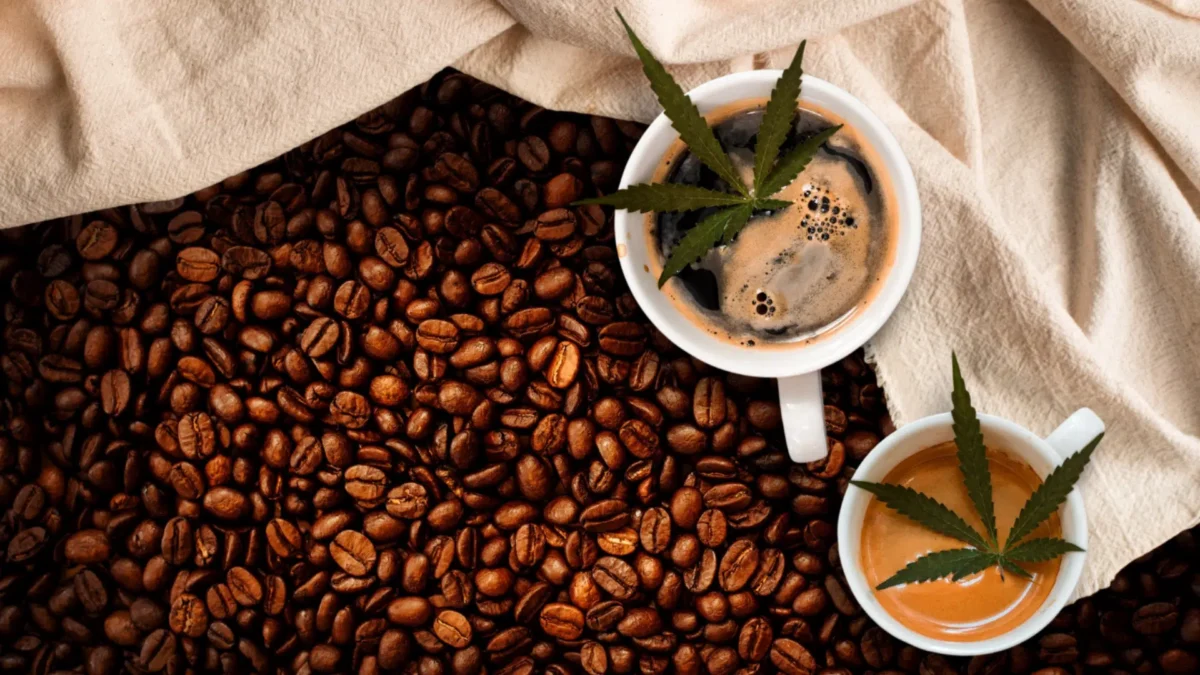
Let’s look at the health benefits of coffee and CBD, backed by research.
Health Benefits of CBD
CBD doesn’t boost serotonin levels but interacts positively with a serotonin receptor, the 5-HT1A neuro-receptor, which exhibits an antidepressant effect. It also helps treat anxiety symptoms related to PTSD (post-traumatic stress disorder), OCD (obsessive-compulsive disorder), GAD (generalized anxiety disorder), and more.
Its antipsychotic effect may even help treat schizophrenia. Research suggests that CBD, in combination with THC, can treat sleep disorders such as sleep apnea, restless legs syndrome, and insomnia. John Hopkins Medicine research also believes CBD can reduce the side effects of anti-seizure medicines.
Individuals with arthritis report CBD helps relieve aches and improves their sleep. As it is less addicting and non-intoxicating, it’s a better alternative than opioids in treating chronic pain. Clinical research also suggests that CBD can be effective in treating cancer-associated nausea, pain, vomiting, depression, anxiety, and sleep problems. It also shows potential as an anti-cancer drug.
Health Benefits of Coffee
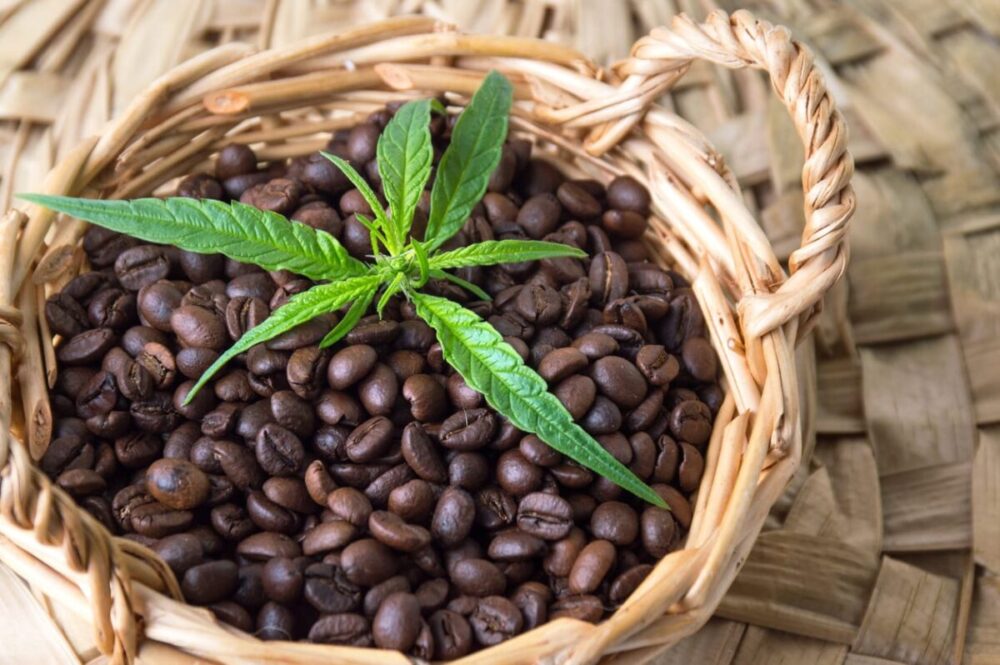
Caffeine works as a psychoactive stimulant and fights fatigue. It increases your energy levels by blocking adenosine (neurotransmitter) receptors which raises levels of other neurotransmitters, such as dopamine, which regulate energy levels. Research also suggests that regular coffee consumption even lowers the risks of developing type 2 diabetes.
Coffee has the potential to protect against neurodegenerative disorders like Parkinson’s and Alzheimer’s disease. It promotes weight management, lowers the risk of depression, and can protect against liver conditions such as liver scarring or liver cancer. Some research believes it can reduce the risk of heart disease, such as by lowering stroke and heart failure risks.
Health Risks Attached with CBD Coffee
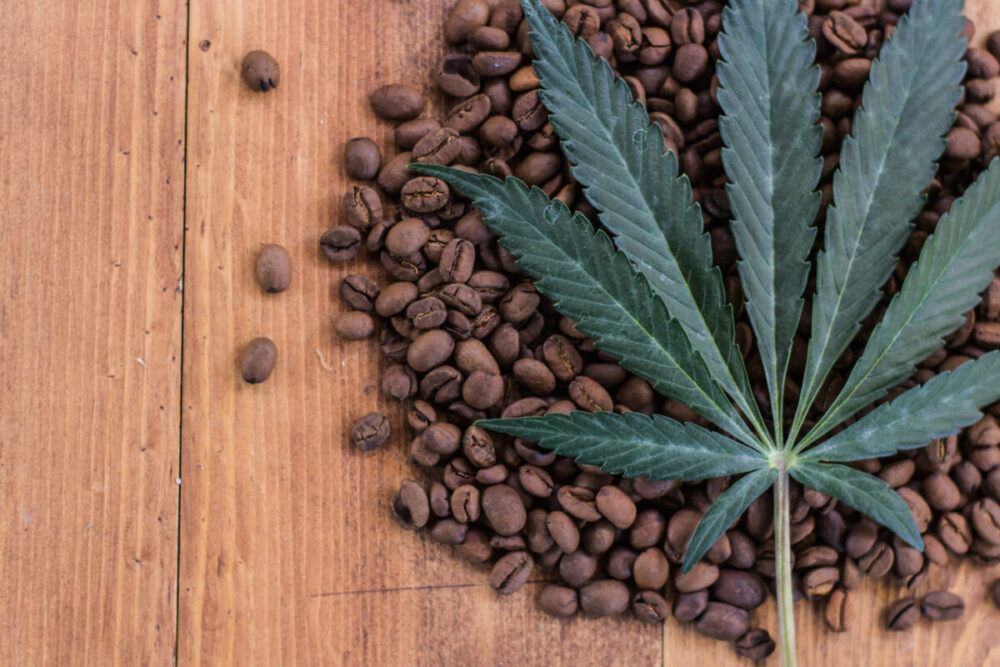
Here are the drawbacks of CBD Coffee you should be aware of.
The Side Effects of CBD
The side effects of CBD are:
- drowsiness
- Fatigue
- Lightheadedness
- Low blood pressure
- Diarrhea
- Irritability
- Reduced appetite
- Dry mouth
- Signs of liver injury
The FDA recommends keeping CBD products away from pregnant and breastfeeding women and children. According to Harvard Health, it also interacts with and stops certain medications from working, such as amiodarone, a heart rhythm medication, and warfarin, a common blood thinner. There is strong evidence for increased risks of suicidal ideation and attempts in the early-age start or chronic use of CBD.
The Side Effects of Coffee

The side effects of coffee include:
- Anxiety and nervousness
- Caffeine-induced anxiety disorder
- Rapid breathing
- Increases stress
- Insomnia
- Heart palpitations
- Digestive issues
- Jitters
- Restlessness
- Muscle breakdown
- Caffeine addiction and withdrawal if attempts to stop or reduce caffeine use
- High blood pressure which a risk factor for heart attack and stroke as it damages your arteries
- Rapid heart rate
- Rebound fatigue
Endnote
While we know the health benefits and risks of CBD and coffee, there is no recent, well-controlled research on the benefits or side effects of combining both. It is crucial you do your own further research, keep up to date with newer research coming out, and talk to your healthcare practitioner as you use CBD coffee. They can direct you to the appropriate amount to consume and if it will interact with any medication you’re on. Your health should always be your top priority, so stay safe.



